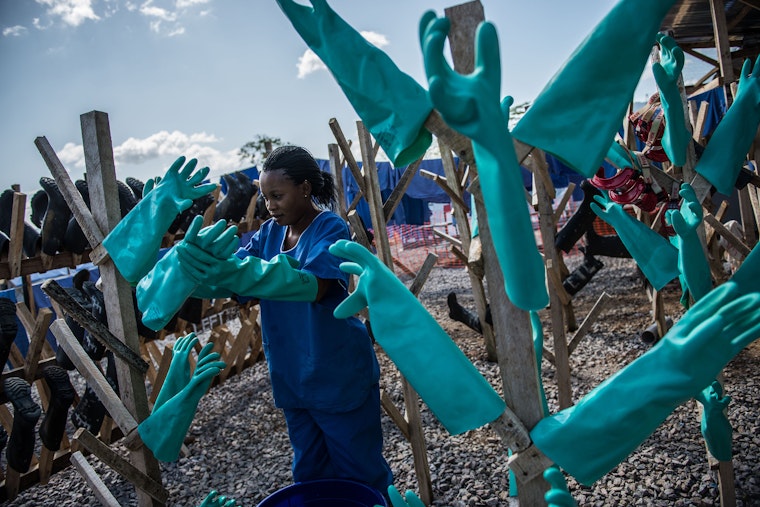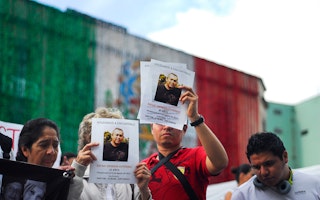In fighting COVID-19, Sierra Leone Should Learn from Ebola Mistakes
By Ikechukwu Uzoma

It’s now almost three months since the first COVID-19 case was reported in Sierra Leone, Since then, over 1,300 cases have been reported, and some 60 people have died. But so far the direct impact of the virus and its impact on people’s livelihoods has been less severe than in many other countries.
Yet the pandemic crisis, whose future path remains uncertain, is a painful reminder of the country’s difficult battle against the 2014-2016 regional Ebola outbreak, which killed almost 4,000 people in Sierra Leone, and sickened some 10,000 more.
Ebola was eventually eliminated in the country. Yet some four years on, many in Sierra Leone are concerned that there has not yet been a proper reckoning for the high-level corruption that tainted that eventual success.
After the Ebola outbreak, three government reports, including two authored by of the Auditor General, found that the government mismanaged at least US $14 million earmarked for, among other things, the purchase of personal protective equipment for health workers, ambulances, and the construction of healthcare facilities.
In 2020, a Commission of Inquiry set up to investigate the activities of then-President Koroma’s government reaffirmed that Ebola response funds “were misappropriated…and had remained unaccounted for”. In essence, the government’s mismanagement of Ebola funds, according to Sierra Leone’s Auditor General “ultimately resulted in the loss of funds and a reduction in the quality of service delivery in the health sector.”
Today, thousands of those infected survived the Ebola virus but live with myriad life-altering health conditions, including blindness and infertility. Regrettably, the government has failed to provide adequate health care and support for these survivors.
In Freetown’s Mount Aureol community, Mamie Aminata’s story is one of many in the country. She lost six adult children to the Ebola virus and assumed the responsibility of taking care of their orphaned children (her grandchildren) who now live with her.
An Ebola survivor herself, Mamie Aminata’s is now blind, and can no longer return to the small-scale trading she did before she contracted the Ebola virus, leaving her and her family without income.
The government’s abysmal Ebola response and subsequent abandonment of survivors is currently the subject of a case instituted by two Ebola survivors and a civil society organization, Centre for Accountability and Rule of Law, before the Community Court of Justice of the Economic Community of West African States (ECOWAS Court). The case seeks first to enforce the fundamental rights of the applicants (on behalf of other survivors) to life and health. It also seeks to compel the government to conduct a thorough criminal investigation into mismanagement of the Ebola funds, and to review its system for ensuring compliance with budgetary and procurement procedures.
In response to public advocacy around the case, the government publicly committed to set up a mechanism to ensure welfare support for survivors and families of Ebola victims. Yet after the 2018 election victory of President Julius Bio, the administration reneged on its public commitments, and argued that the ECOWAS Court case should be dismissed.
Although the government denies the merits of that case, its COVID-19 response implicitly acknowledges the mistakes made, and could potentially set the tone for better transparency and accountability.
For example, the government’s anticorruption agency established a COVID-19 Response Transparency Task Force to ensure accountability and transparency in the utilization and management of funds related to the pandemic.
Unfortunately, this task force alone is not enough. The government must also:
- Ensure that health workers have sufficient personal protective equipment (PPE) and other supplies.
- Create an effective system for the payment of hazard allowances to people at the frontlines of the pandemic response.
- Strictly abide by procurement rules and closely monitor private contractors engaged to provide public services or perform public functions.
- Develop a robust transparency framework and proactively disclose information on its COVID-19 response in the print and electronic media.
- Respond to requests for information on COVID-19 expenditures and hold regular community engagements to engender public participation and awareness.
As the Bio administration advances its COVID-19 response, it should also seek to resolve the troubled legacy of the Ebola crisis. It can do this by engaging meaningfully in the issues raised by the applicants in the ECOWAS Court case on behalf of survivors.
To do so would likely bolster public confidence and trust in its governance of the nation, at a time when both are vital.
Ikechukwu Uzoma is an Aryeh Neier Fellow based in the Berlin hub office of the Open Society Foundations.

